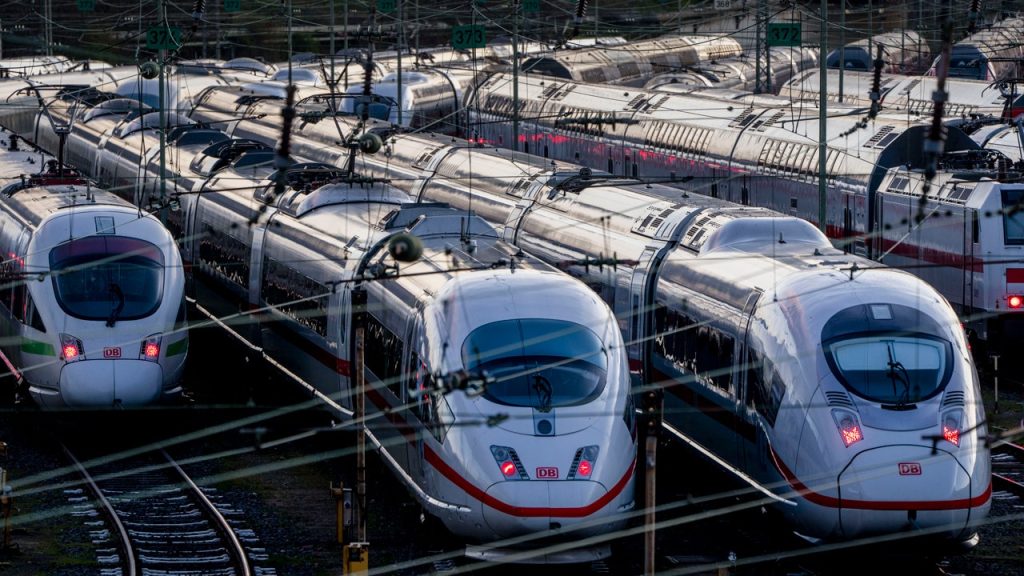Germany’s main railway operator, Deutsche Bahn, and the train drivers’ union, GDL, have reached a deal following a long dispute over working hours and pay. This disagreement had led to a series of strikes, causing disruptions in the country’s transportation sector. The specific details of the agreement have not been disclosed, as both parties plan to release separate statements on Tuesday. The dispute between GDL and Deutsche Bahn had been ongoing for months, with GDL calling for a reduction in working hours from 38 to 35 hours per week without a pay cut.
The conflict between GDL and Deutsche Bahn was one of several pay disputes affecting various sectors of the transportation industry in Germany. Other disputes included disagreements involving local transport workers, ground staff, cabin crew for Lufthansa, and airport security staff. GDL’s demand for reduced working hours was met by some smaller private operators that operate regional services, but it was unclear how this issue was resolved between GDL and Deutsche Bahn. The strikes by train drivers had caused significant disruptions to rail services in Germany, prompting the union to take further action in response to the ongoing compensation dispute.
The deal reached between GDL and Deutsche Bahn comes after a period of intense negotiations and strikes that had affected rail services throughout Germany. The agreement marks a resolution to the conflict over working hours and pay that had been a source of tension between the union and the railway operator. The lack of details regarding the agreement suggests that both parties have made compromises to reach a mutually acceptable outcome. The strikes by train drivers had caused inconvenience for passengers and businesses, highlighting the importance of resolving disputes in a timely manner.
The agreement between GDL and Deutsche Bahn is expected to bring an end to the disruptions that have affected rail services in Germany in recent months. The resolution of the conflict over working hours and pay will allow both parties to move forward and focus on providing reliable and efficient transportation services to the public. The deal reached between the union and the railway operator demonstrates the importance of communication and compromise in resolving labor disputes in the transportation sector. It remains to be seen how the agreement will impact the working conditions of train drivers and the overall operations of Deutsche Bahn.
The resolution of the dispute between GDL and Deutsche Bahn reflects a commitment to finding common ground and working together to address issues in the transportation industry. The successful negotiation of the agreement highlights the importance of open communication and collaboration between labor unions and transportation companies. Both parties have shown a willingness to reach a compromise that serves the interests of all involved, ultimately leading to a positive outcome for the German rail sector. The agreement reached between the union and the railway operator sets a precedent for resolving future conflicts in a way that benefits both employees and employers.
In conclusion, the agreement between GDL and Deutsche Bahn represents a significant milestone in the resolution of a long-standing dispute over working hours and pay. The deal reached between the union and the railway operator is expected to bring an end to the strikes and disruptions that have affected rail services in Germany. The resolution of the conflict demonstrates the importance of compromise and open communication in addressing labor disputes in the transportation sector. Moving forward, both parties are expected to work together to provide reliable and efficient rail services to the public, highlighting the positive impact of mutual collaboration in resolving conflicts in the industry.


